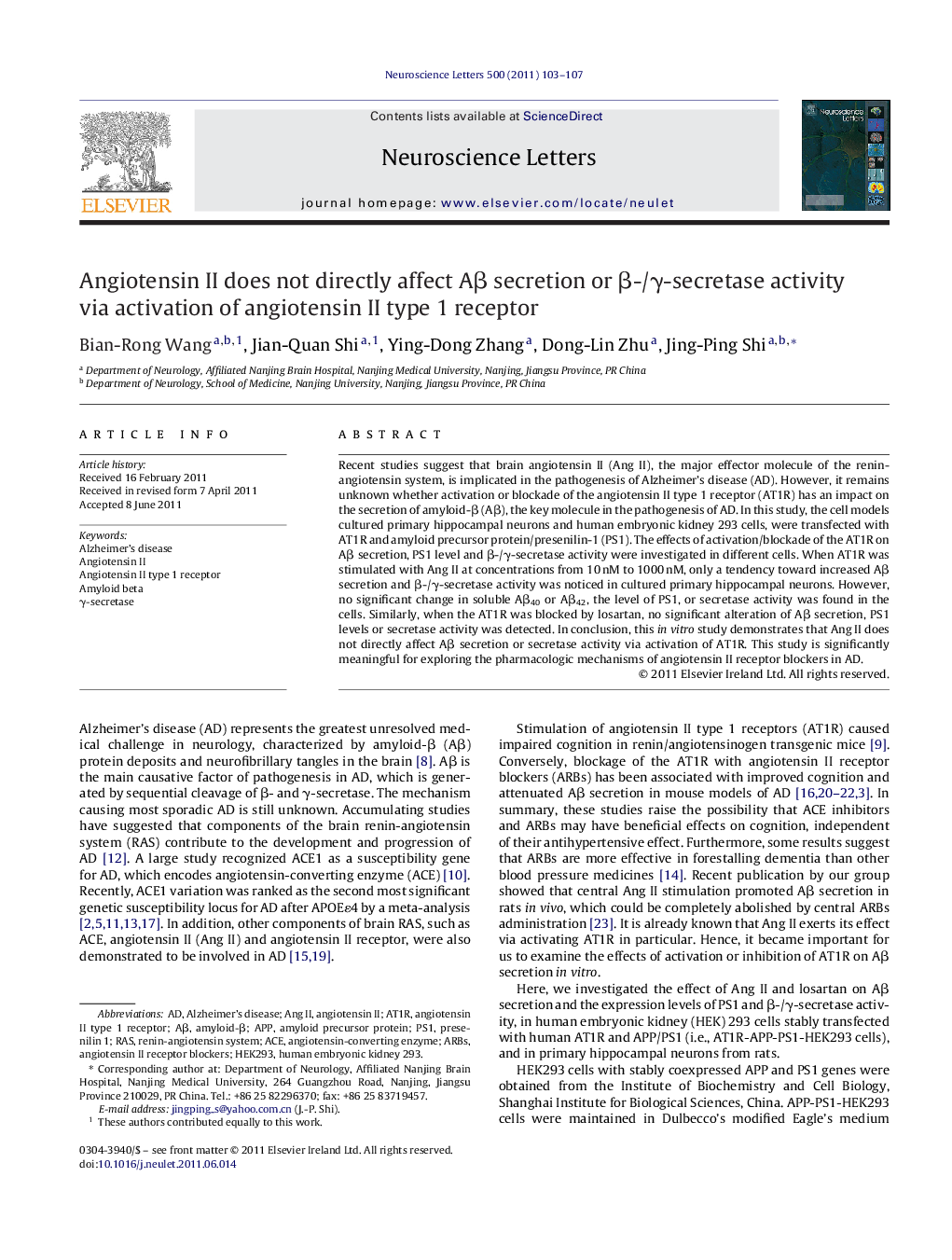| Article ID | Journal | Published Year | Pages | File Type |
|---|---|---|---|---|
| 4345117 | Neuroscience Letters | 2011 | 5 Pages |
Recent studies suggest that brain angiotensin II (Ang II), the major effector molecule of the renin-angiotensin system, is implicated in the pathogenesis of Alzheimer's disease (AD). However, it remains unknown whether activation or blockade of the angiotensin II type 1 receptor (AT1R) has an impact on the secretion of amyloid-β (Aβ), the key molecule in the pathogenesis of AD. In this study, the cell models cultured primary hippocampal neurons and human embryonic kidney 293 cells, were transfected with AT1R and amyloid precursor protein/presenilin-1 (PS1). The effects of activation/blockade of the AT1R on Aβ secretion, PS1 level and β-/γ-secretase activity were investigated in different cells. When AT1R was stimulated with Ang II at concentrations from 10 nM to 1000 nM, only a tendency toward increased Aβ secretion and β-/γ-secretase activity was noticed in cultured primary hippocampal neurons. However, no significant change in soluble Aβ40 or Aβ42, the level of PS1, or secretase activity was found in the cells. Similarly, when the AT1R was blocked by losartan, no significant alteration of Aβ secretion, PS1 levels or secretase activity was detected. In conclusion, this in vitro study demonstrates that Ang II does not directly affect Aβ secretion or secretase activity via activation of AT1R. This study is significantly meaningful for exploring the pharmacologic mechanisms of angiotensin II receptor blockers in AD.
► Activation/blockade of the AT1R has no significant effects on Aβ secretion. ► Activation/blockade of the AT1R has no significant effects on PS1 level. ► Activation/blockade of the AT1R has no significant effects on β-/γ-secretase activity. ► Ang II does not directly affect APP process via activation of AT1R in vitro.
